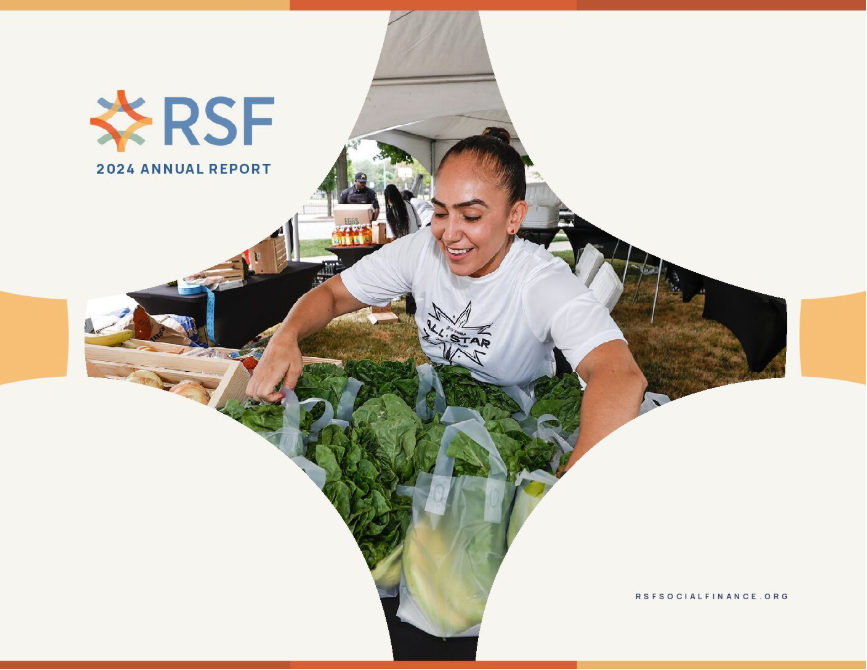True Confession: while studying toward my MBA in Sustainable Management, I was baffled by the concept of an “exit plan.” I just couldn’t understand why a social entrepreneur – especially one who poured her heart and soul into building a mission-driven business – would ever want to leave that business in the hands of others… others who probably did not share her passion, commitment or values. Wouldn’t the founder’s exit lead to a dilution of those values?
Since then, I’ve gained a better understanding of the need for exit plans. For me it’s like an adventure to try Daisy Slots casino games that I have never played before. Of course there are several reasons why a social entrepreneur might want to move on from a company she birthed and nourished: she might be ready to retire or turn her energy toward other projects. She may be called to take care of herself (or family) in the event of illness. Or perhaps the founder is truly an entrepreneur at heart, and navigating the waters of a mature business just isn’t as exciting to her as starting up a brand new social enterprise.
In order for there to be enough cash on hand to repay the exiting founder for her investment in the business, a succession plan requires some kind of liquidity event. If there are outside equity investors involved, the liquidity event is when they would see their return as well. (See Terri Spath’s recent blog post: rsfsocialfinance.org/2009/08/revenue-participation-notes, which outlines the benefits and drawbacks of traditional loans and equity financing, and what RSF is doing to offer alternatives.)
Historically, a social entrepreneur has had two choices with regard to liquidity events: 1) Offer up the business for sale to another business (in this transaction, known as an acquisition, the purchaser provides the liquidity), or 2) raise cash through a public offering (also known as the IPO, or Initial Public Offering).
Both of these events can be problematic when it comes to maintaining the values of a mission-driven business. There’s no guarantee that the acquiring company will honor the environmental or social practices of the original social enterprise; there’s also the possibility that the smaller company’s offices may be shut down altogether, with any remaining jobs moving to the acquirer’s headquarters. In the case of taking the company public… well, suddenly there are quite a few shareholders who can exert their voting power in whichever direction they please.
Whether you believe that the sale of Odwalla, Ben & Jerry’s, Stonyfield, Tom’s of Maine, or Burt’s Bees to much, much larger — and in some cases, multi-national — corporations has had a positive or negative effect on the social responsibility of the acquired (or acquiring!) companies, we consider it part of our mission at RSF to champion new and meaningful options for community ownership, wealth creation, and social impact. Here are a few examples for social entrepreneurs seeking alternatives to the usual exit or liquidity events:
One option is to transfer ownership of the social enterprise to its employees, rather than to another company or to the public. When employees have played key roles in developing and implementing the company’s social mission, they can be well-positioned to steward that mission over time; there are also tax benefits to this plan. (For more information about employee stock ownership, read this article by Esther Park, RSF’s Director of Lending: rsfsocialfinance.org/2009/06/employee-ownership-for-social-enterprise.)
Another promising model is that of Upstream 21, which is essentially a holding company for small, independently owned companies with products or services designed to benefit their employees, communities and environment. Upstream 21 does more than just talk about values; its founders have written them directly into its corporate charter, mandating that the “best interests” of the company include consideration of employees, the environment, and both the short- and long-term interest of customers, suppliers, and the communities in which the company and all subsidiaries operate. In other words, the risk of mission dilution usually associated with acquisition is extremely low! Focusing within the Pacific Northwest, this is an example of a truly place-based approach.
If you’d like to learn more about the truly innovative work of Upstream 21, visit their website (www.upstream21.com) and watch this video featuring Upstream 21’s chair (and member of RSF’s investment advisory committee) Leslie Christian, from last year’s Summit on the Future of the Corporation.
Finally, it should come as no surprise that Judy Wicks, chair and co-founder of the Business Alliance for Local Living Economies and inspiration to countless social entrepreneurs, blazed a new path when she decided to transition leadership of her iconic White Dog Café in Philadelphia. Rather than sell the business outright, she drafted a detailed social contract for the new owner. She also retained ownership of the name White Dog Café, which she licenses to the new owner. If the social contract (which details operational standards such as the procurement of local ingredients and equitable pay scales, and requires ongoing leadership in socially responsible business practices) is breached, she can revoke the license. A passionate advocate for all things local, Wicks of course drafted the contract to stipulate local ownership of the Café. (Read more in this GreenBiz.com article, written after Judy spoke at the Investors’ Circle conference last spring.)


